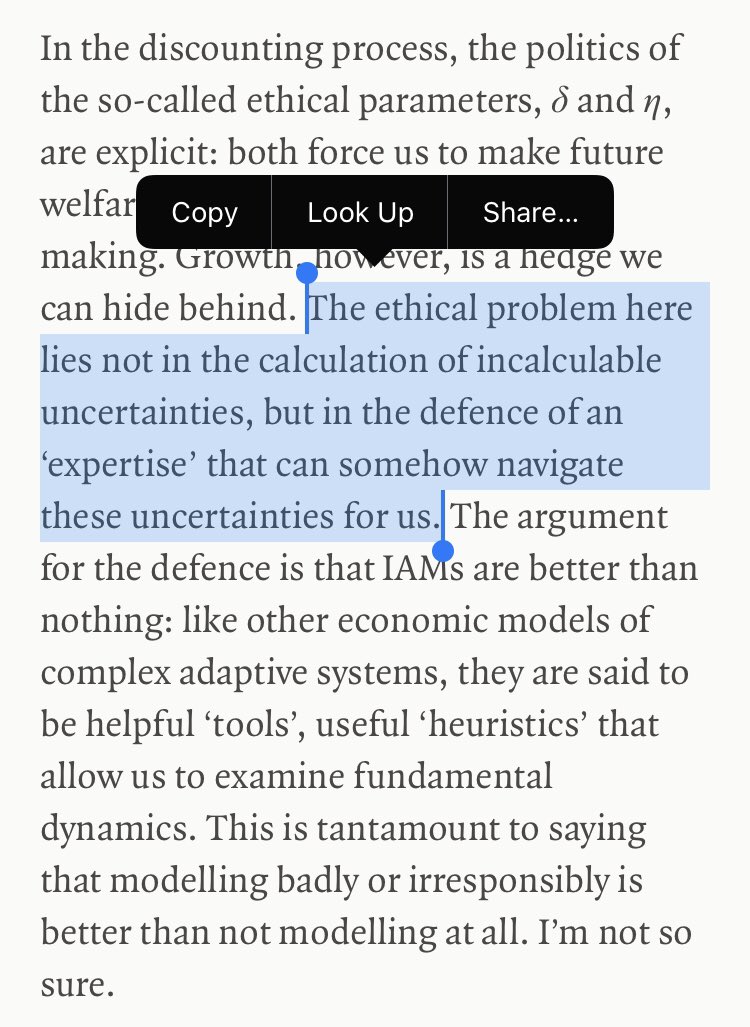
It has come to my attention that not everyone has the time or inclination to read 5,000 word think pieces on theories of change and why #schoolstrike4climate and what it heralds could be of epoch-shaping importance, so THREAD... businessgreen.com/bg/blog-post/3…
First up #schoolstrike4climate has to be seen in the context of genuinely remarkable resurgence of the climate movement in the last few months driven by everything from @AOC and #greennewdeal through to @GreggsOfficial vegan sausage rolls and, of course, @GretaThunberg...
Expectation was climate campaigns and green business action would steadily build up through to late 2020 and crucial crunch dates of US election and Paris Agreement coming into full effect. But the kids are in a hurry. And who can blame them.
You can see they have touched a nerve because they are angering all the right people. The palpable confusion and anger in the response of frothing right wing commentators is something to behold. #snowflakes the lot of them.
And somewhere buried deep in their angry attacks on schoolchildren(!) is a sneaking fear that if the kids are right, if climate change is an emergency and the coming generation understands that then the jig is up. The threat to the carbon intensive status quo is absolute.
BTW it should surprise no one that after hymning the suffragettes our tone deaf PM sides with the angry old men and against the idealistic children fearful for their futures (and she doesn't even have the excuse of climate scepticism to justify her condemnation).
How hard is it to say 'I applaud the school strikers vision and engagement. That is why my govt is cutting emissions fast and exploring how to build a bet zero emission economy for these young children...
... However, a valuable lesson is that protest requires sacrifice, so I hope every protesting student accepts their detentions stoically and makes up any work they've missed'.
Anyways, back to why #schoolstrike4climate and the wider moment is so important. First up, watch the business response. Climate is being thrown into the culture war. Who do business + political leaders want to align with? Angry old men or the future? It's not much of a decision.
Then there's the challenge to the dominant green theory of change, which has been largely technocratic. That has sparked a clean tech revolution and the Paris Agreement, but not delivered emissions reduction...
What the last few months ask is 'what could be achieved with real, powerful, sweeping public demands for action driven by a justifiable sense of burning injustice?' The answer is a hell of a lot.
What makes this different to previous climate protests? Three things:
1. The weather, or rather the fact all weather now endures the bootprint of climate change. Everyone can see the impacts. Its 16C in Feb. Read @dwallacewells kids.
1. The weather, or rather the fact all weather now endures the bootprint of climate change. Everyone can see the impacts. Its 16C in Feb. Read @dwallacewells kids.
2. The demand are increasingly feasible. That technocratic theory of change delivered seriously cheap renewables and clean tech. A wave of thrilling R&D is underway. @MLiebreich @MichaelGrubb9 and many others are showing how system change could be possible.
As anyone who reads @BusinessGreen serious corporate muscle is signed up to this transition and is committed to driving it as fast as possible.
3. We have 20 years of climate policy experimentation to draw on. We increasingly know what works and how. We may not be doing enough, even of the time easy stuff, but there are templates to follow.
Everything points to a thrilling 20 years as clean energy, EVs, and technologies you've never even dreamed of yet reshape the global economy far faster than anyone expects and at massive net benefit to everyone.
Reasons for pessimism? I've got those too:
1. It's all 20 years too late isn't it? It should have been my generation that was on the streets in the 90s but we were busy having too much fun. I'm still scared for my darling boys. Still this: businessgreen.com/bg/blog-post/3…
1. It's all 20 years too late isn't it? It should have been my generation that was on the streets in the 90s but we were busy having too much fun. I'm still scared for my darling boys. Still this: businessgreen.com/bg/blog-post/3…
2. You think the backlash has been bad so far? You think smearing school kids is all the reactionary right has got? Can you think of anything the Trump admin won't do to win next year? Me neither.
3. Climate Hawks are more than capable of squandering this opportunity. The reaction to the GND has taken the narcissism of small differences to a whole new level.
Serious state intervention to avert a global emergency is not Venezuela.
Business investment and innovation is not inherently evil greenwash.
Both approaches will likely be needed. Enough with the ideological purity tests. There's work to do.
Business investment and innovation is not inherently evil greenwash.
Both approaches will likely be needed. Enough with the ideological purity tests. There's work to do.
Despite these risks there's no doubt change is in the (unnervingly mild) air. There are reason to think after 20 years the public, politics, and business could finally be ready move in unison in pursuit of a net zero, clean, healthy economy. It may be too late,but it could happen
So huge thanks to #schoolstrike4climate.
How does change happen?
"Two ways. Gradually, then suddenly."
/ENDS and full piece here businessgreen.com/bg/blog-post/3…
How does change happen?
"Two ways. Gradually, then suddenly."
/ENDS and full piece here businessgreen.com/bg/blog-post/3…
• • •
Missing some Tweet in this thread? You can try to
force a refresh









